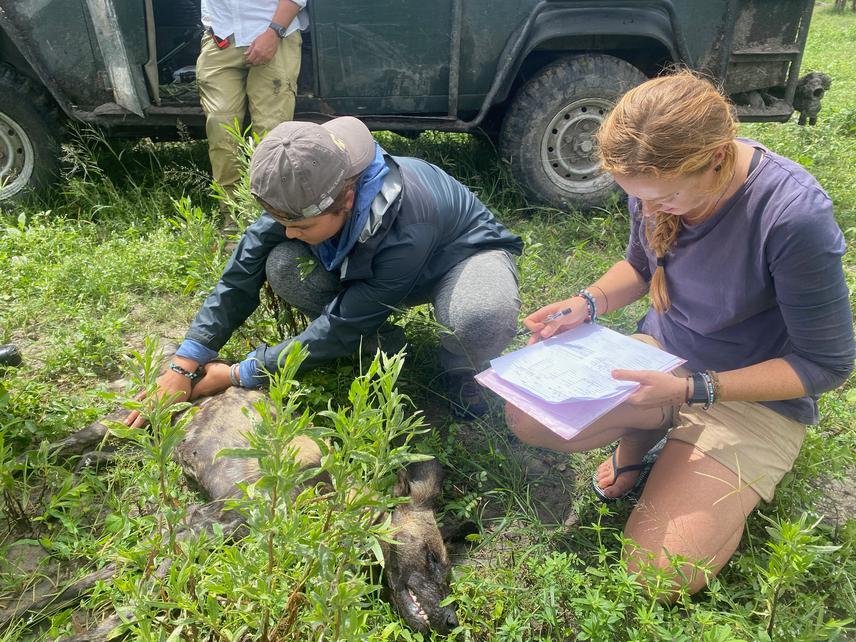Katherine Hansen
The African wild dog is the most endangered carnivore in southern Africa, and its largest threat is conflict with an expanding human population (1, 2). The Okavango Delta hosts the largest extant range for the species, making it a crucial source population (2). At the edges of protected areas in the Okavango Delta are pastoralist communities (2, 3) that frequently depredate wild dogs because of conflict with livestock.

Scientists have shown that the urine of packs influences the movements and territories of wolves and coyotes, and have experimentally demonstrated urine’s effects on one reintroduced wild dog pack in Botswana (4–6). However, the abilities of urine to act as a conflict mitigation method for any carnivore remain unknown. This project proposes a landscape-level field experiment to test the abilities of strategically placed wild dog urine in deterring packs from denning and moving near human settlements and livestock. The goal of the experiment is to develop a mechanistic understanding of African wild dog space use and translate this into a deployment protocol for a urine-based product that could keep wild dog packs away from areas with livestock.